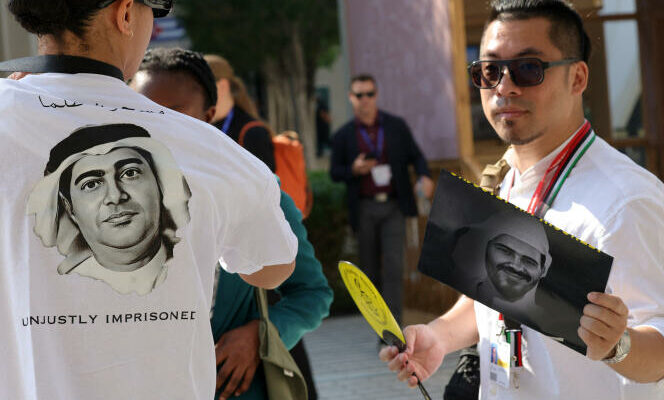The media blackout in the United Arab Emirates (UAE) lasted almost a month. The authorities finally made it official, on Saturday January 6, with the publication of a press release from the official WAM press agency, what exiled dissidents and human rights activists relayed with concern: eighty-four opponents are the subject of a collective trial, which opened on December 7, 2023 before the State Security Court.
The list of accused has not been made public. But behind the bar are, according to consistent information, opponents who have often already been tried and imprisoned. Among them, dozens of Islamist sympathizers incarcerated following a previous, very political trial held in 2013; human rights defender Ahmed Mansour, a liberal, sentenced to ten years in prison in 2018 for “damage to the reputation of the State”, who became the face of the victims of repression in the Emirates; academic Nasser Ben Ghaith, arrested in 2015 for simple tweets; or an Islamist dissident, convicted in absentia in 2013 and forcibly extradited in the spring of 2023 from Jordan, Khalaf Al-Romaithi.
The first hearing of this new mass trial was held in the middle of the climate conference (COP28) in Dubai, thumbing its nose at the human rights organizations who had seized the opportunity to advocate for a softening of the authoritarianism that prevails in the UAE, under the rule of President Mohammed Ben Zayed, known as “MBZ”. The authorities were then pleased to welcome the COP “the most inclusive ever organized”. The third hearing is scheduled to take place on Thursday January 11.
According to the WAM agency, ” most [des accusés] are members of the Muslim Brotherhood terrorist organization. They are judged “for having created another clandestine organization with the aim of committing acts of violence and terrorism on the ground” Emirati. The new prosecutions follow a “thorough investigation” having made it possible to bring together a “compelling body of evidence”.
An excuse
But, for Human Rights Watch or Amnesty International, these new accusations are only a pretext. “It is a question of maintaining in detention the people convicted in 2013, most of whom have already served their sentence, and who have remained behind bars according to a law which allows the extension of the detention of prisoners deemed unrepentant, estimates Sima Watling, specialist on Gulf countries at Amnesty International. Regarding the case of Ahmed Mansour, the message sent is clear: no contradiction or criticism has any place in the country. »
You have 45% of this article left to read. The rest is reserved for subscribers.
